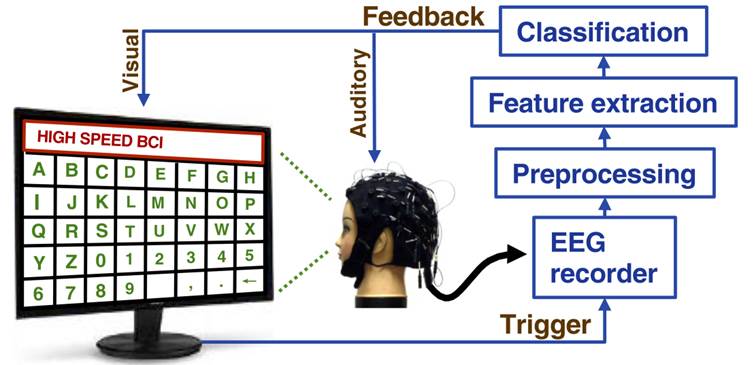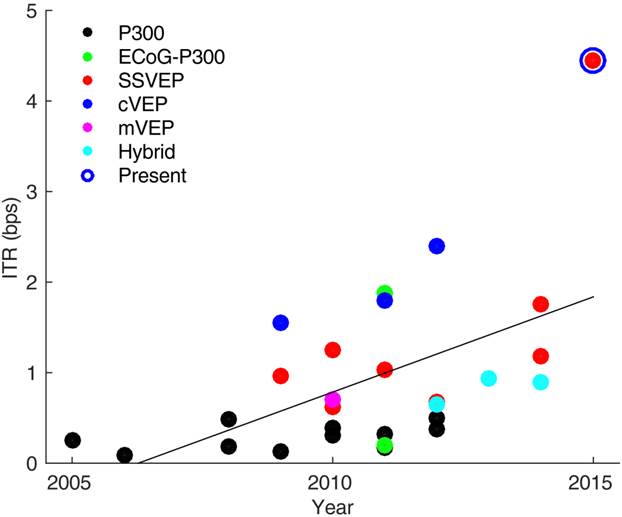The brain–computer interface (BCI) technology provides a new communication channel. Although it has made unprecedented progress in this field in the past 20 years, its low communication rates are remaining key obstacles to BCI-based communication. WANG Yijun, working at the State Key Laboratory Integrated Optoelectronics, Institute of Semiconductors, Chinese Academy of Sciences, develops an electroencephalogram (EEG)-based brain speller. It can achieve information transfer rates (ITR) up to 5.32 bits per second, which is a new world record for brain spellers using either non-invasive or invasive methods. The paper "High-speed spelling with a noninvasive brain-computer interface" was published online by Proceedings of the National Academy of Sciences of the United States of America (PNAS) on October 19, 2015.
Based on the finding of the extremely high consistency of frequency and phase observed between the visual flickering signals and the elicited single-trial steady-state visual evoked potentials, WANG Yijun and his collaborators coming from Tsinghua University and University of California San Diego, develops a synchronous modulation and demodulation paradigm to implement the BCI speller. Specifically, they propose a new joint frequency-phase modulation (JFPM) method to tag 40 characters with 0.5-seconds-long flickering signals, and develop a user-specific target identification algorithm using the individual calibration data. The resulting speller obtains high spelling rates up to 60 characters (~12 words) per minute. For the first time, this work demonstrates that BCIs can provide a truly naturalistic high-speed communication channel using noninvasively recorded brain activities.
This work is supported by the National Basic Research Program (973), the National High-Tech R&D Program (863), and the National Natural Science Foundation of China.

Fig. 1 System diagram of the brain speller.

Fig. 2 Information transfer rates for current brain spellers.
Reference:
X. Chen, Y. Wang, M. Nakanishi, X. Gao, T. P. Jung, S. Gao, "High-speed spelling with a noninvasive brain-computer interface", Proc. Natl. Acad. Sci. U.S.A., doi:10.1073/pnas.1508080112, 2015.
